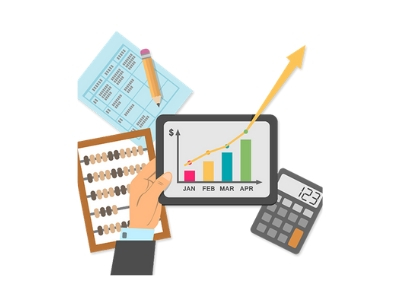Starting your own business is an exciting milestone and it should be celebrated, but it can also turn out to be a hectic period in time as well. As such, business owners often lose sight of staying on top of their record-keeping while they are busy making sales and servicing clients. No matter how many times you tell yourself you’ll get back to it later, it rarely ends up happening, and this is what becomes seriously detrimental when it comes time to report to the ATO.
To help you stay on top of your reporting obligations without sacrificing all your time we’ve created a beginner’s guide to keeping accurate records.
Establish a CRM System
CRM just means Customer Relationship Management and with the sea of technology we live in, finding a system to suit you is easy as pie. You can use apps, websites, cloud-based systems or desktop downloads- so long as your essential client data is stored like their contact details and service/order history, that’s all you need to start off with. If you are using Accounting Software a CRM system would typically be a part of the package, so you can integrate the two together to make the administration side of operating your business as seamless as possible.
Remember Reporting Obligations
This is as easy as noting down your lodgement due dates for BAS (if you’re registered for GST or PAYG) or your payroll process dates to pay your employees. You should also note down when an activity is actioned. For example, ‘GST documentation sent to accountant on the 30th June’. By doing so you maintain clear records in case of an ATO audit or just if you ever need to look back on previous work.
Don’t Let your Bookkeeping Pile Up
If you regularly sit down in front of the computer, say for 10 minutes at the end of the day, you save yourself a lot of time in the long run. This is because you aren’t flicking back through your bank account or messages trying to figure out what it was you bought or who paid you months ago when the transaction occurred. This is also the best way to make sure there’s no errors in your bookkeeping, as these can easily be overlooked when you have hundreds of transactions to review rather than just a few.
Ask your Accountant for Advice
It’s your accountant’s job to know what it is that you should be reporting as income and expenses to the ATO, even if they don’t directly manage your bookkeeping. So if you aren’t sure whether or not you should be keeping a receipt or how to categorise a transaction it’s best to ask the professionals, or enter it how you think but keep a list of notes to give your accountant at the end of a reporting period so they know that there may be errors or clarifications that need to be made.
The accounting professionals at iBusiness Group are well-equipped with the knowledge in both taxation and bookkeeping to better assist our clients in their business reporting. This allows us to offer advice on all aspects of their day-to-day business operation and helps to avoid the dreaded scenario of falling behind in record-keeping. To find out more about how we can help get in contact with our administration team via 1300 857 985, or visit our Gold Coast office.
